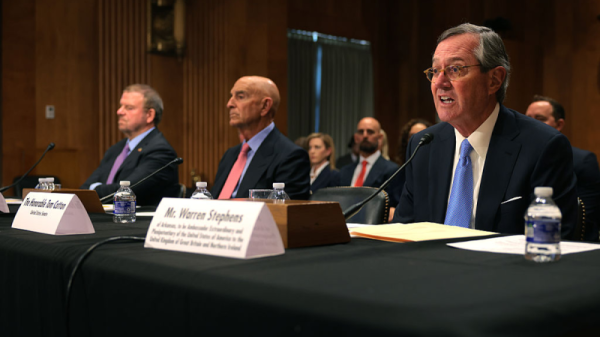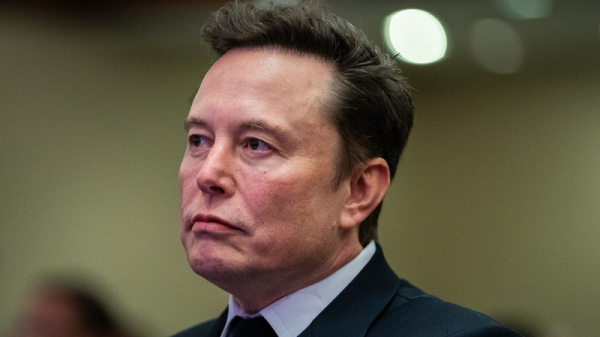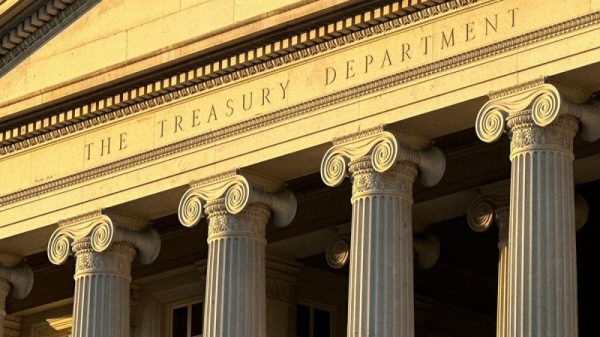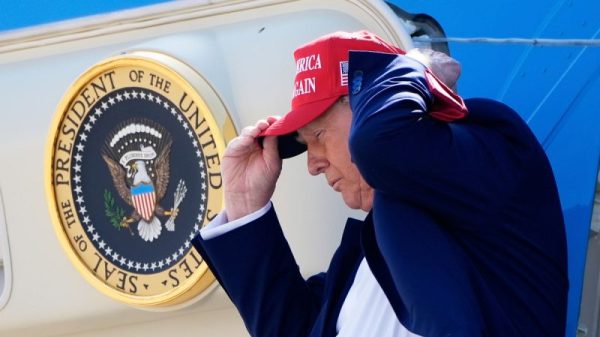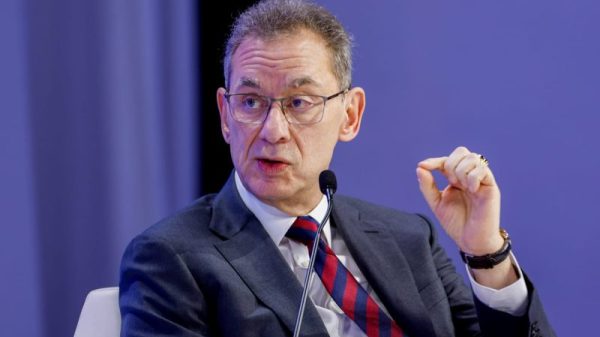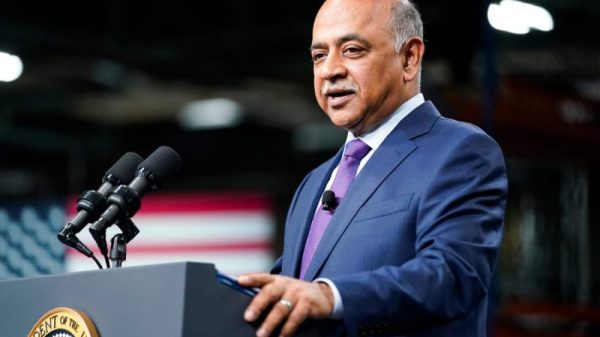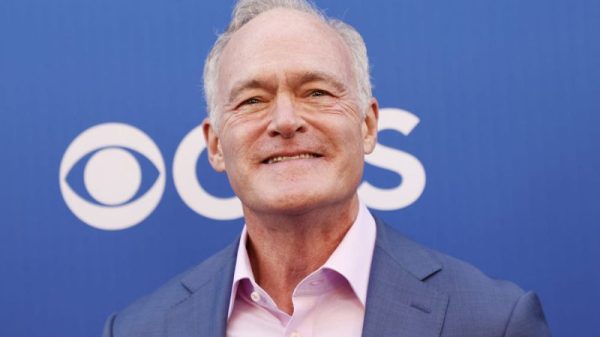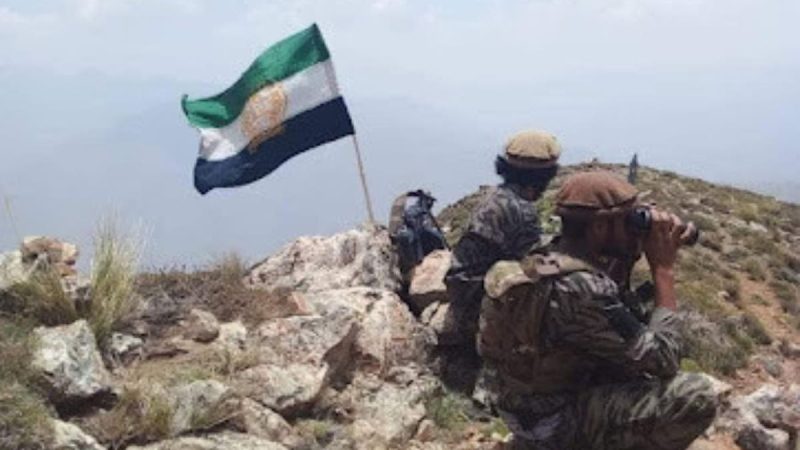Three years since the U.S. withdrawal from Afghanistan and 23 years since the 9/11 terror attacks that led to the U.S. invasion, Afghanistan finds itself in a worse position now than it was on that fateful day.
‘This country has become once again a safe haven for terrorism. It will become a battlefield once again,’ Afghan National Resistance Front (NRF) leader Ahmad Massoud told Fox News Digital in a rare interview.
According to Massoud, the threat emanating from Afghanistan is much greater today than it was on 9/11, and the U.S. failed to achieve its number one objective of rooting out terrorists when it hastily pulled out of Afghanistan in August 2021.
The threat of terrorism from Afghanistan has spread from the U.S. to Europe and recently to Russia. It is just a matter of time, Massoud fears, for it to reach America’s shores again.
‘I know for a fact the time will come,’ Massoud said.
Massoud is not giving up on his vision of a free and democratic Afghanistan despite the odds, and he believes that Americans and Afghans hold intimate bonds over shared values of fighting for freedom against terrorists.
‘I feel very much the same feeling with all those victims of 9/11 and the people of the United States and Afghanistan are very much connected to each other because those attacks were carried out by the same team, those who attacked Americans on 9/11 killed my father,’ Massoud said.
Twenty-three years later and four U.S. presidential administrations since, Afghans live under the same threat of Islamic extremism and with the same pain and oppression as they did on 9/11.
Almost immediately after the Taliban regained power, anti-Taliban forces quickly fled to Afghanistan’s northern Panjshir Valley and announced their opposition to the new regime.
Massoud, the leader of the NRF, vowed to continue the fight against the Taliban.
‘I didn’t want to leave my people alone in the hands of evil,’ Massoud told Fox News Digital.
Massoud is the son of Afghan resistance hero Ahmad Shah Massoud. The younger Massoud was only 12 years old when his father was assassinated by al Qaeda two days before the 9/11 terror attacks. Shah Massoud was integral to the rebels who fought against the Soviet occupation of Afghanistan in the 1980s and became a leading figure in the anti-Taliban Northern Alliance that resisted the Taliban’s reign from 1996 to 2001.
As a young boy growing up in war-ravaged Afghanistan, it was not clear at the time that he would follow in the same footsteps as his legendary rebel father.
‘My father never wanted me to walk in the same path,’ Massoud recounted.
His father did not want him becoming a rebel leader because of the pain that it causes, Massoud remembered, and the enormous pressure and the high expectations it has is unbearable.
Massoud is not doing this for his late father or because he is his son.
‘I’m just doing it because I’m madly in love with my people, and I cannot see them in this situation.’
As the years and memories of that sunny, cloudless and traumatic Tuesday morning in September fade away, Massoud is trying to remind America and the world not to forget about the threat from terrorism in Afghanistan.
‘Today, al Qaeda is much stronger and entrenched in Afghanistan than it has ever been,’ the resistance leader said.
The 2020 Doha Agreement negotiated under former President Donald Trump laid the groundwork for the withdrawal of all U.S. forces in exchange for a pledge from the Taliban to prevent any terrorist organization from using Afghan soil to threaten or attack the United States or its allies.
Taliban spokespersons made assurances that they would not allow any terror group to plan an attack from Afghan territory. Although it is true that al Qaeda and other terrorist groups have yet to stage any attacks on the U.S. or its allies, groups like al Qaeda still operate within Afghanistan and have deeply rooted ties with the Taliban.
Numerous United Nations reports note that since their return to power, relations with al Qaeda remain close, and the group that carried out the 9/11 terror attacks is ‘strategically patient, cooperating with other terrorist groups in Afghanistan and prioritizing its ongoing relationship with the Taliban.’
Al Qaeda operates at least eight training camps across Afghanistan but does so covertly in order to create the image that the Taliban is adhering to the Doha Agreement, according to U.N. monitoring.
While the U.S. was negotiating with the Taliban, Massoud knew all along they were not negotiating in good faith.
‘It is going to fail, and it will also show the world the true face of the Taliban,’ Massoud said.
The leader of the NRF said the international community believed the lies of the Taliban that they had fundamentally changed from the group that previously ruled Afghanistan prior to 9/11.
‘Women have been degraded to nothing but property of men and education has been completely destroyed by the Taliban,’ Massoud said angrily.
The elder Massoud, according to his son, warned against an international presence in Afghanistan, saying that the U.S. came to him and proposed operating military bases in the country and to help jointly fight against terrorism.
Shah Massoud was very clear in his vision.
‘My father said boots on the ground in Afghanistan will never work,’ Massoud recounts his father saying. ‘We fought against the invasion of the Russians. And really, he did not want the presence of another foreign force in Afghanistan,’ he added.
The U.S. did not heed these warnings when they went into Afghanistan.
Massoud wants to continue his father’s policy of no foreign troops on Afghan soil and wants to fight terrorism with his own forces based in the country. What he is looking for is the logistical and financial support to carry on the fight.
‘We indeed need help and support from the world,’ Massoud said, but he also understands the frustration in the United States over ‘forever wars’ and respects U.S. policy opposing further wars. The U.S.-Afghan relationship should continue its efforts to fight terrorism, Massoud believes, and that Afghans should not feel betrayed while the same group that killed Americans and Afghans is in power.
Three years later, and with the Taliban cementing their power, the U.S.-Afghan partnership that emerged after 9/11 remains nonexistent.
‘We are on our own and there is no external support.’
Massoud believes if the U.S. and international community throw their support behind the NRF, it could make a huge difference.
‘Even the slightest of external support, you would see the liberation of a big chunk of Afghanistan. Because the people are very much against the Taliban, the slightest bit of hope and the slightest of opportunities for the people of Afghanistan, and we would see a crack in the armor of the Taliban,’ he explained.
Massoud did not mince words when talking about U.S. policy and was critical of the period immediately after 9/11 and the invasion of Afghanistan when the War on Terror expanded to Iraq and Saddam Hussein’s regime.
‘The expansion of this war to Iraq completely diverted attention from Afghanistan and Afghanistan for a while [was] the second priority.’ Massoud argued that more attention was needed to help build Afghan institutions and make the new government more stable and therefore harder to overthrow.
Massoud was also critical of early U.S. strategy, including the endeavor to create an Afghan army in the image of the U.S. armed forces.
‘We did not have American resources or American technology. It was a recipe for disaster.’
Massoud also said that the U.S.’ conflicting strategies of counterterrorism and counterinsurgency over the years failed to fully defeat the Taliban and create a stable Afghan government.
‘It means that, unfortunately, the Afghans could not make the Americans understand that these strategies don’t work in Afghanistan, and they failed to come up with a proper strategy.’
However critical Massoud is of American and international leadership and strategy in Afghanistan, he still placed 70% to 80% of the blame on the Afghan leadership and their flawed thinking that the U.S. and coalition partners would remain in Afghanistan forever like on the Korean Peninsula. The false sense of security did not allow Afghan leaders to focus on national trust, and corruption and criminality ran rampant.
‘Unfortunately, the inside political game and personal agendas and not having the capability to see that this situation could never last very long, or that it was not a forever perk,’ hurt Afghanistan’s ability to fight terrorism threats it faced or build a stable democracy.
‘They missed all of those opportunities,’ Massoud said.
The resistance leader is not unaware of the complicated nature of international politics and realizes that many conflicts are currently raging on, which require U.S. attention and resources.
‘There’s a fatigue in the U.S. and the West, and they have been stretched from Ukraine to Taiwan to Gaza. So that stress is also another factor for them not to actually pay attention to Afghanistan,’ Massoud lamented.

